Anton Siluanov: ‘The opportunity offered by the republic not to pay on budget loans works’
The state debt of Tatarstan has increased to 106 billion rubles
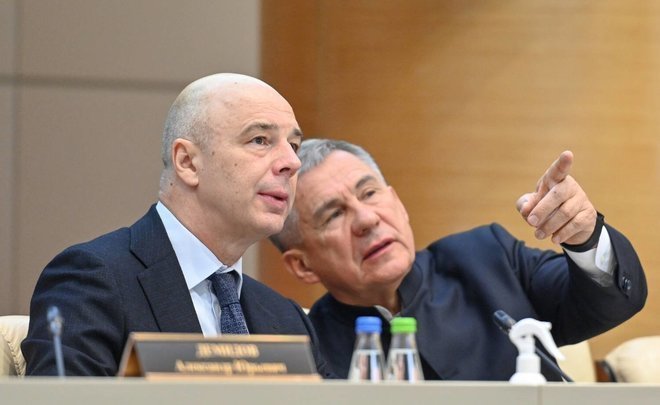
Despite ominous forecasts about the collapse of oil exports, Tatarstan tax authorities have shown a fantastic upgrade of their own records. By the end of 2022, it is planned to collect 1,257 trillion rubles of taxes in the republic, which is by 12,5% more than last year's level. “We must be prepared for that conjunctural windfalls may not continue in such volumes," Finance Minister Anton Siluanov warned to be more careful in spending for the future. “If we fall heavily, we will have to optimise the investment programme, it will not work without it," Tatarstan President Rustam Minnikhanov promised him. Besides, budget loans to Russia: so far, we have managed to write off a modest 1,7 billion rubles due to the implementation of investment projects. Read the details in the material of Realnoe Vremya.
100 billion on top
On a winter morning, the government building was crowded with VIPs of the economic and financial block of the government of Tatarstan. 15-20 minutes before the start of the final meeting of tax, financial and treasury bodies, scheduled for 8 a.m., the head of the Federal Tax Service of the Republic of Tatarstan, Marat Safiullin, and then Finance Minister Radik Gayzatullin with a team of deputies arrived. In the foyer next to the Christmas tree, a large screen was lit with greetings from Minister of Finance of Russia Anton Siluanov, Deputy head of the Federal Tax Service of the country Viktor Batsiev and Deputy head of the Federal Treasury Alexander Demidov. The incoming ones flew past and went up to the third floor, where the traditional meeting of the financiers' headquarters was to take place. 3-5 minutes before the start, the speaker of the State Council, Farid Mukhametshin, drove up. It looks like everyone who was supposed to have arrived by that time — the hall was full.
The first figures on how much the republican treasury will collect taxes this year were announced by the president of Tatarstan. In fact, they can be considered final, since there are two weeks left until the end of the year, and only formalities prevent us from saying that they have been received. Rustam Minnikhanov said that the consolidated budget will receive 513 billion rubles, of which 420 billion rubles will be own income, and the remaining 87 billion will be gratuitous federal transfers. Initially, the consolidated budget revenues for 2022 were approved in the amount of 405,3 billion rubles. In other words, the treasury will receive 100 billion rubles from above.
The republican budget will also receive additional revenues of about 50 billion rubles. The expected revenues will amount to 359,7 billion rubles, whereas initially the revenue part of the republican budget was approved in the amount of 308,3 billion rubles. It would seem that the windfall more than covers the budget deficit of 9,5 billion rubles in 2022, but there was no special joy from the New Year's surprise of the tax authorities.
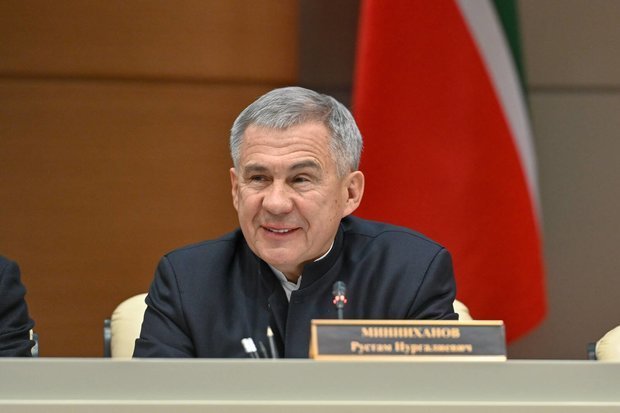
On the contrary, Rustam Minnikhanov recalled that next year the republic's budget was adopted “very tense” and with a record deficit of 27 billion rubles.
“These funds need to be sought already today. It is necessary to observe strict financial discipline to fulfill priority and social obligations, to continue working with reserves," he said, apparently intending to postpone additional income for a rainy day.
But the main reserve, according to him, is the recovery of arrears, which has grown to a gigantic figure of 13,4 billion. He immediately expressed concern about the growth of the number of unprofitable enterprises — up to 33%, that is, every third. “Don't be modest!” the federal guests will say later.
“Yes, a number of enterprises have increased losses. But according to our statistics, the financial indicators of Tatarstan enterprises look optimistic. The share is profitable — 78,8% — this is the highest indicator in the Volga Federal District," Viktor Batsiev, the deputy head of the Federal Tax Service of Russia, praised Tatarstan business.
Additional revenues of the treasury are provided by extra-planned tax collections. According to the head of the Department of the Federal Tax Service of the Republic of Tatarstan Marat Safiullin, 1 trillion 257 billion rubles have been collected in Tatarstan this year, which is by 12,5% more. For example, the fees for the most “sensitive” income tax amounted to 163,3 billion rubles, which is by 37% more than the plan. The increase mainly occurred in oil production and petrochemistry. The MET fees have increased significantly, which provided almost 700 billion rubles of revenue to the treasury. Personal income tax fees from citizens increased by 13,2% — up to 111,2 billion rubles. Summarising the winning statistics, Marat Safiullin noted that the economy turned out to be resistant to external shocks.
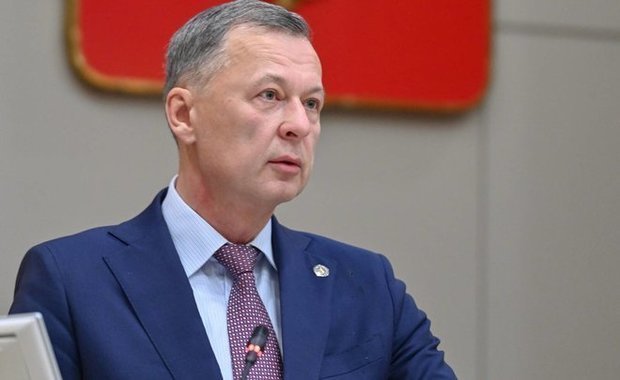
Minnikhanov on consequences of cancellation of consolidated taxpayers group: “There was one question, and we sort of resolved it”
At the end of his speech, Russian Finance Minister Anton Siluanov asked how Safiullin assesses the consequences of the cancellation of the KGN (consolidated group of taxpayers) mechanism from next year.
As Realnoe Vremya has already told, the Tatarstan authorities estimated budget losses at 7,5 billion rubles. Tatneft, which has enterprises in different regions of the country, mainly generates out-of-pocket revenues. From January 1, they will have to pay taxes at the place of registration.
“How will this affect the republic's income?" Siluanov asked. He also noted that in the whole country this will lead to an increase in income tax receipts, due to which it will not be possible to “collapse losses and profits inside the KGN”.
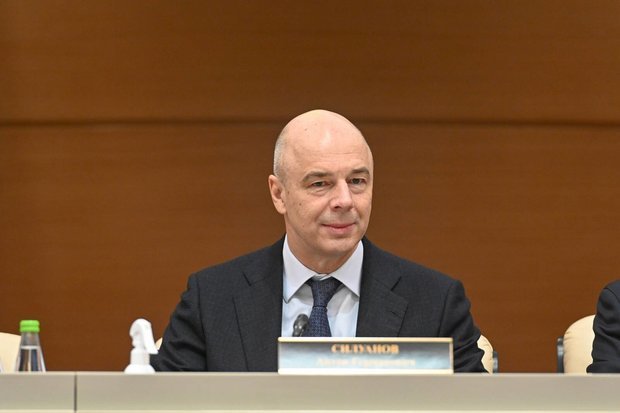
“The introduction of the KGN will lead to a decrease in income tax receipts. But it will not lead to serious changes in the formation of budget plans," the head of the Federal Tax Service for the Republic of Tatarstan agreed.
“There was one question there, and we sort of resolved it," confirmed Minnikhanov.
“There will be some kind of failure at first, but then everything will get better”
Another issue that worried the Russian Finance Minister was the consequences of switching to the single tax account. From January 1, 2023, all categories of taxpayers will switch to a new form of payment of taxes and insurance premiums — Single Tax Payment (ENP). That is, the company will have to repay its obligations to the budget in one payment, and not make payments for each type of tax separately. Tax experts believe that the innovation will simplify the payment and avoid mistakes. Here the head of the Federal Tax Service of the Republic of Tatarstan does not see any special difficulties.
“We have been preparing since the summer. There are about 70 enterprises in the pilot," he said.
However, the budget itself may have cash gaps, since not all enterprises will be able to master a single payment. To cover them, municipalities will have to take out a loan.
“There are such agreements that the municipality will have the opportunity to provide a loan for the prompt repayment of cash gaps," said Marat Safiullin.
Moreover, taxpayers themselves will have the opportunity to use such loans. Then the president of Tatarstan intervened in the conversation. He did not hide that cash gaps cannot be avoided.
“Certainly, there will be some kind of failure at first, but then everything will get better," he hopes. “But you have made a decision, we must go. We will just adjust it manually at the transitional stage. In principle, I think we will cope with this task.
“If we fall heavily, we have a large investment programme, we will have to optimise”
The Minister of Finance of the Russian Federation expressed concern that income tax charges may fall next year.
“Next year, high volatility in financial results is expected (meaning income tax — author's note). First of all, this will affect the oil industry and petrochemistry. Have you done stress testing for the next year? What measures are planned to be taken if less favourable conditions develop?" he asked Minister of Finance of the Republic of Tatarstan Radik Gayzatullin. “Is there a vision?
He assured that the budget for 2023 was made up of conservative forecasts and there should be no gaps.
“Income tax is weighted and feasible. If there are only drastic changes, then it will be necessary to think about this issue," Radik Raufovich began to reason.
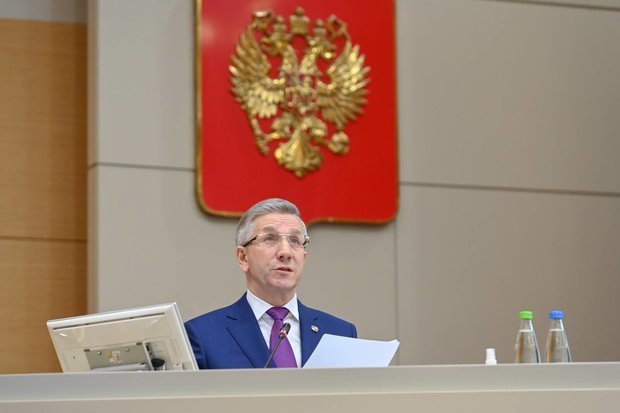
“When we went to the parliament, the figures were formed without much appetite," assured Minnikhanov. “If we fall heavily, we have a large investment programme, we will have to optimise, without this it will not work," said the president of the Republic of Tatarstan, where we will have to look for a way out of a difficult situation. “In general, these are not just figures, but indicators worked out with each enterprise.
Besides, the snag remains with the state debt of the Republic of Tatarstan on budget loans to the Russian Federation. So far, it has been 96 billion rubles. However, today the Ministry of Finance of Russia has released fresh figures, where the debt has increased by 10 billion rubles — up to 106 billion rubles. How it grew up was not commented on.
But the Ministry of Finance of Tatarstan plans to get rid of it according to a new scheme — enterprises launch new investment projects, and tax revenues from them go towards its repayment. On November 23, the Russian government signed an order to write off part of the state debt of the Republic of Tatarstan on budget loans at the expense of tax revenues received from the implementation of new investment projects, the head of the Ministry of Finance of the Republic of Tatarstan said. Regulatory acts provide for the possibility of writing off the debts of the republic if all conditions taken by the Republic of Tatarstan are met. However, the amount of write-off this year turned out to be modest — 1,7 billion rubles, while the possible amount of write-off was designated at 73 billion rubles. However, there are no new investment projects in the republic that could be used to repay the state debt of the Republic of Tatarstan.
Nevertheless, the Ministry of Finance is optimistic about the use of this tool.
“The republic actively uses the development tools that are offered at the federal level. The opportunity offered by the republic not to pay for the budget loans of the Federation, but to use the money for the economy is working. This was the proposal of Rustam Nurgalievich, and we extended it to the entire Federation. And the Republic of Tatarstan was the first to use this tool," Siluanov said.